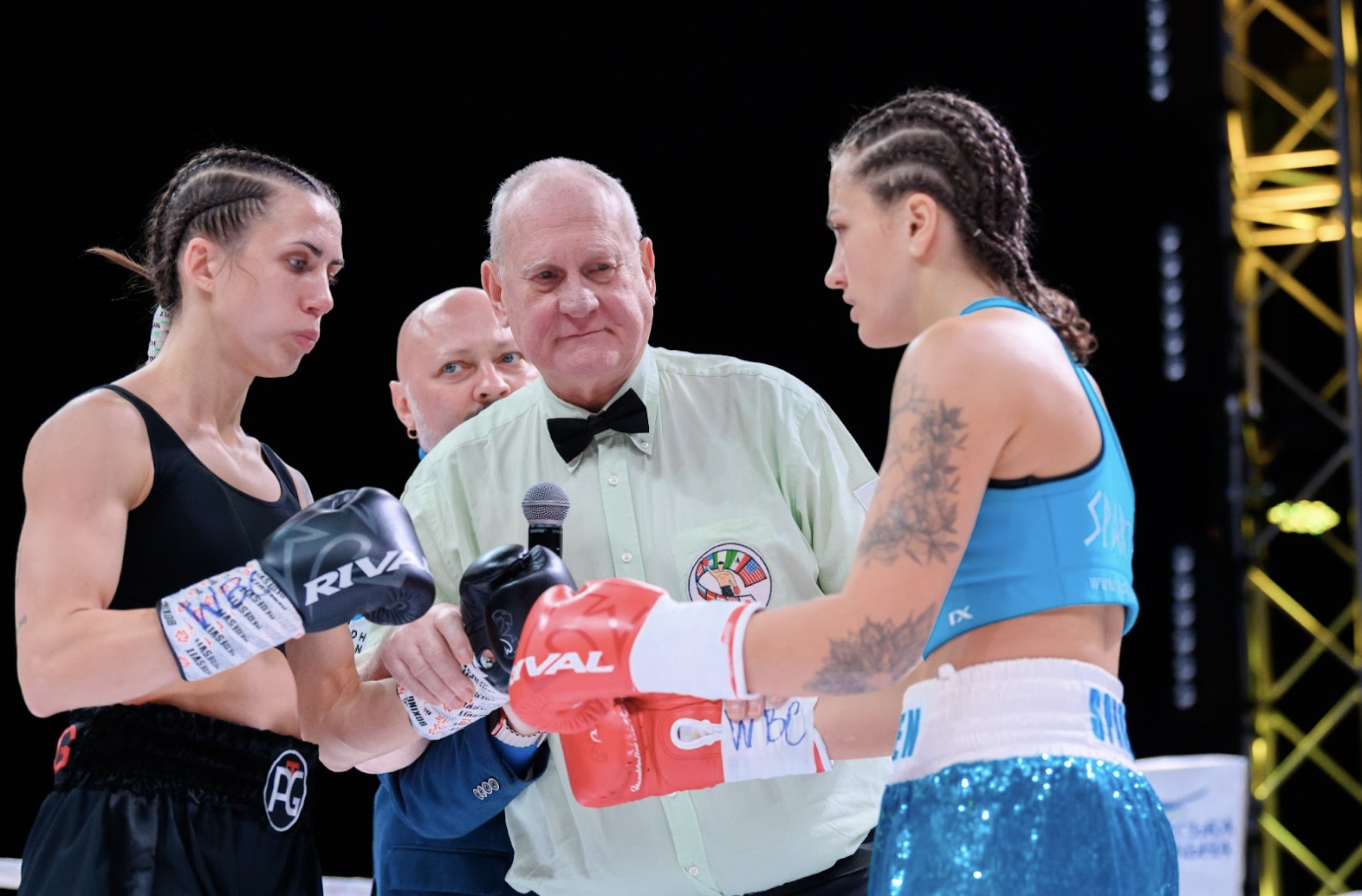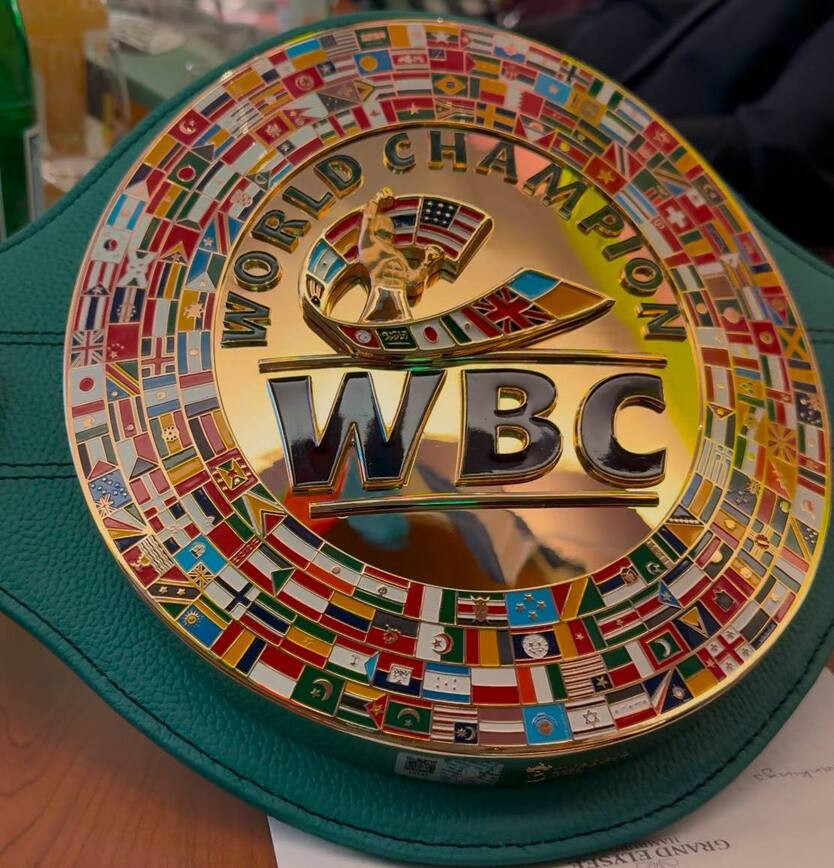
Since independence, boxing has repeatedly become Ukraine’s calling card in sports. Numerous victories in the ring brought recognition not only to the boxers but also to the country. And with the outbreak of the war in Ukraine in 2014, sports and boxing, in particular, became one of the platforms where Ukraine could be spoken about more loudly.
Amid a full-scale war, the slogan “Sport is out of politics” lost its relevance in Ukraine. For many athletes, it became unacceptable to compete in European and world-level competitions alongside Russians because they are citizens of the aggressor country.
We talked to WBC Ukraine President Mykola Kovalchuk about the role boxing plays in this. Has this sport become the voice of Ukraine at the global level? Is it permissible to contact Russians in the ring? How can the personal position of boxers affect the country’s reputation? Read about all this in the interview.
The WBC office has been operating in Ukraine since 2021. At the time of its creation, the WBC management was convinced that it would be an impetus for developing professional and amateur boxing in the country. However, most of the time, the representative office operates during the war period. What goals have you achieved in 3 years and which ones have not?

Of course, the war has made adjustments not only in the lives of all Ukrainians but also in sports. For a long time, we could not function as a sanctioning organization and fulfill our priorities, but we have been actively working since the first days of the full-scale invasion.
The World Boxing Council (WBC) is one of those global organizations that deals not only with its professional field, so their charity project WBC Cares has become a platform for us to attract a lot of help because the mission of this project is to help everyone who needs it.
So, while our work was mostly focused on charity, boxing in Ukraine began to come to life, and we did not abandon our plans to hold the first title fight for the WBC Ukraine belt.
To date, we have already held 5 such fights along with the title of the Ukrainian Champion (National League of Professional Boxing of Ukraine), and we are currently planning 2 more fights in November and 1 in January. It is important to note that each tournament during which the WBC Ukraine title was played was a charity event, which allows us to continue to help the Armed Forces of Ukraine.
So it’s hard for me to say which goals we did not achieve. All of them are becoming a reality to some extent, just maybe not as fast as we had imagined from the very beginning. Sometimes, I even think that the war, on the contrary, gives us the strength to keep going, because from the very beginning, few people believed in the WBC Ukraine title, and now it is one of the coveted awards of our Ukrainian boxers who plan to build their professional careers.
Since the beginning of the war, the sports world has repeatedly debated whether sport is really outside politics. What is the position of the WBC Ukraine office in this regard? Did this create conflicts with the WBC management?

This has definitely never created any conflicts. As I mentioned earlier, in all my previous interviews, WBC President Mauricio Suleiman and the entire team have been very supportive of us, so they are very grateful and respectful for everything they do for Ukraine.
As for whether sport is outside of politics, it is definitely not.
At first glance, sport is considered to be a sphere that should be separated from politics, a place where states can compete without regard to national or political interests. However, in practice, sport has always been, is, and will be one of the levers of political influence. The WBC Ukraine, in turn, constantly draws attention to the terrible consequences of the war among colleagues and friends from the World Boxing Council, and even more, thanks to sports, we have managed to influence some of the world’s political processes.
First, the WBC officially excluded Russians and Belarusians from its ratings. And in the spring of 2024, WBC Ukraine posted a poster of a fight between Russians Dmitry Bivol and Artur Beterbiev on Instagram. Are the reasons for this incident to be found in a change in the WBC’s general policy?
I’ll call this my favorite question. Well, it’s worth saying that you’ve studied our Instagram page quite closely, or the journalists who gleefully spread the news in a matter of minutes.
There will be nothing completely new for you here because the general policy remains the same. It all happened because of the banal indiscretion of a new employee who was not yet fully familiar with the world of boxing and did not coordinate the publication with the management.
People tend to make mistakes and it can happen to anyone. So we quickly just changed the post, understanding the indignation of our subscribers, and went on with our work.
Ukrainian boxers have had many successful fights over the past three years. In your opinion, how do these victories represent Ukraine abroad?

The successes of Ukrainian boxers in the international arena over the past three years are of great importance for the representation of Ukraine abroad. Each victory of Ukrainian athletes raises the prestige of the country, demonstrating the strength, resilience and talent of Ukrainians. Especially now, in the context of the war, these victories take on an even deeper meaning as they symbolize Ukraine’s struggle for its independence and right to exist.
How does active participation in the fights affect the interest of foreign viewers in events in Ukraine?
Every Ukrainian who steps into the ring and wins becomes a kind of ambassador for the country. The coverage of the events by our champions largely informs foreigners and constantly reminds them of the conditions in which we live now.
What else do these victories give us?
The victories of Ukrainian athletes bring the country not only international recognition but also strengthen national pride and unity. They inspire new generations of athletes and raise the prestige of Ukrainian sport. Successes on the world stage help to shape a positive image of Ukraine, strengthen its position in the international community and open up new opportunities for cooperation.
What are the prospects for holding international matches in Ukraine? During the war, this question does not arise, but can this change?

Sometimes it’s hard to believe, but in recent months there have been 3 international title fights:
- WBC Silver in bridgerweight (101.61 kg) between Sergiy Radchenko and Andre Pesic,
- WBC Interim Youth in welterweight (66.68 kg) between Yaroslav Mikhalushko and Oscar Molina Espinoza
- WBC Youth Silver in super lightweight (63.5 kg) between Nazri Rahimov and Jorge Moya.
In the last tournament held in Lviv on September 28, in which our team took part, almost all Ukrainian boxers had foreign opponents, boxers from Mexico, Argentina and Poland. Therefore, we are only on the way to scaling up such boxing nights, in which the safety of all participants and spectators is now the main role.
Speaking of the local role of WBC Ukraine, what are the current conditions for the development of professional and amateur boxing in Ukraine?
We also work a lot in the area of amateur boxing. Until recently, we often visited amateur tournaments to encourage young athletes and show them that they have something to strive for. However, I hope that soon we will be ready to announce some great news related to amateur boxing, as we have recently received a new WBC Ukraine Amateur belt.
Does the issue of mobilization affect professional boxers? Can you give examples of boxers who are currently at the front?
Of course, we know many such heroic examples among boxers. For example, WBC CISBB champion and our good friend Vladyslav Baranov went to the front from the first days of the full-scale invasion to join the assault brigade. Konstantin Rovensky, a talented judge and referee, also decided to voluntarily go to defend our country. By the way, our YouTube channel has a podcast called “WBC TALKS” in which we discuss with them what motivated them to take this step. We can also mention the judge and referee Viktor Fesechko, who, by the way, was a member of the judicial commission at the first Usyk vs. Joshua fight. International judge Elchin Muradov was killed in the war. I’ve only mentioned those with whom we keep in touch very closely, and there are incredibly many examples of this, I think the number of boxers who went to the front will be much larger than this interview in general.

Do you think the Ukrainian voice is sufficiently present in international sports?
Of course, and it’s hard not to notice. For example, if we don’t go beyond the WBC, we work very hard and communicate with everyone who influences the formation of boxer ratings.
Most importantly, all the members of the rating commission listened and understood that not all Ukrainian boxers can regularly hold fights due to the martial law in Ukraine to maintain their positions in the ratings, so the positions of many of our boxers were simply kept unchanged by the rating commission.
It is important to understand that everything that people abroad hear and see about Ukraine is the result of a long “game of one-upmanship,” meaning that each of our voices alone would not have mattered, but when everyone does it, and with such passion, it is impossible to pass by. We should not stop and continue to look for ways to reach out to members of the international sports community.
How long will it be possible to ban the sanctioning of Russians’ participation in international matches, given that it is already becoming more difficult to do so?
If we talk about how long we can keep the sanctions in place, this is a difficult question. We all understand that such structures are commercial and depend on many promoters, so it is impossible to make any clear predictions.
For our part, we are doing our best to extend this period as much as possible and constantly remind ourselves about the war, especially at the annual WBC congresses, as well as in personal communication with the WBC President and members of the WBC Board of Directors. However, recently, a fight between the “Canadian” Beterbiev and the Russian Bivol (actually citizens of the Russian Federation, but one of them represented another country) was scheduled to take place. Because of the refusal to hold this fight, the World Boxing Council received several criticisms from other organizations and promoters, who put pressure on the WBC to make this fight happen. I don’t want to end on a negative note because, in fact, I’ve already made enough arguments throughout this interview that prove the WBC’s commitment to Ukraine.
Today, the WBC is the most popular boxing sanctioning organization, which has a very tangible impact on the popularity of pro boxing in Ukraine and the promotion of Ukrainian athletes on the world stage.
I am convinced that there will be even more to come!

For the first time in Ukrainian history, two Ukrainian women, Anastasiia Petrenko and Oksana Bondarenko, competed for the WBC titles.

WBC President Mauricio Sulaiman presented the new generation of the WBC world title
